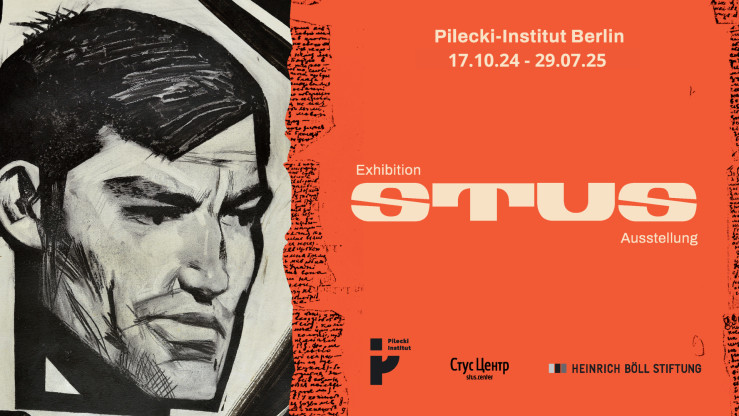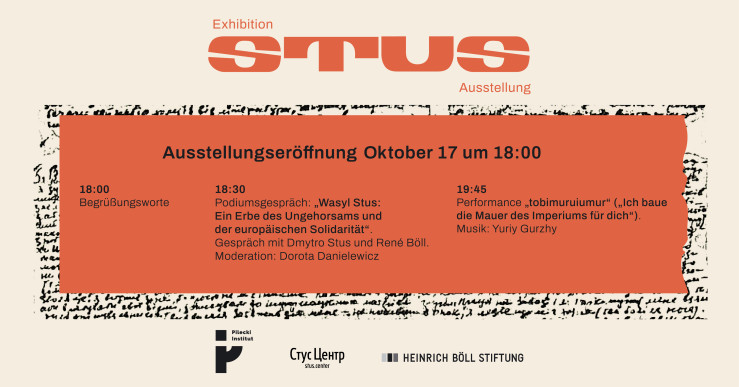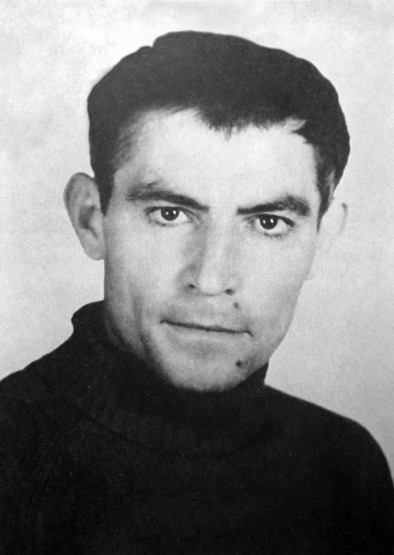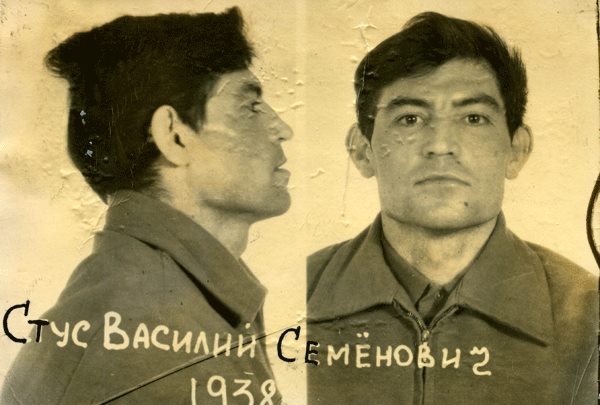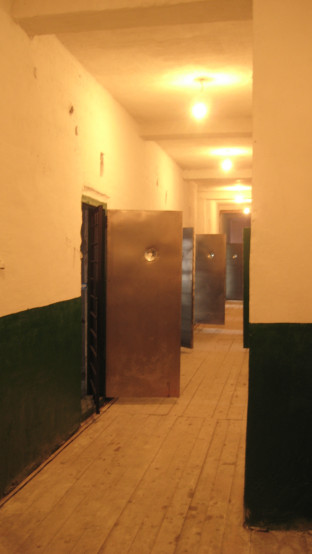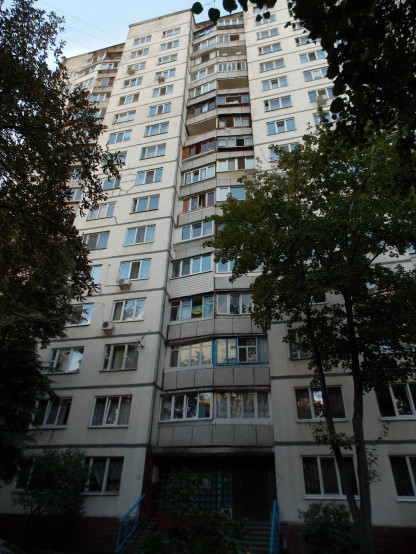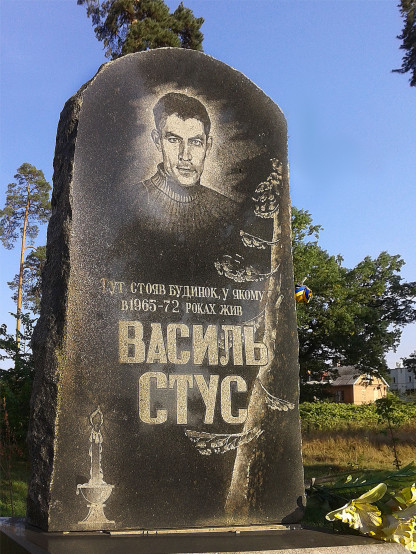First international exhibition about Vasyl Stus! Now in Düsseldorf! - Instytut Pileckiego
17.10.2024 () 18:00
First international exhibition about Vasyl Stus! Now in Düsseldorf!
An exhibition about a forgotten Ukrainian and European freedom fighter!
“Stus”
The first international exhibition about a forgotten Ukrainian and European freedom fighter: Vasyl Stus was a poet, intellectual, Nobel prize Nominee and dissident from Ukraine who died defending the Ukrainian identity and language in the Soviet Union in 1985
Main Organizer: Pilecki-Institut Berlin
Co-Organizer: Heinrich-Böll Stiftung, Stus Center
Event language: German and Ukrainian (the exhibition contains texts in German and English)
Full and extended Press Release: Download here
Event Agenda of the Opening (17.10)
18:00 - Welcoming remarks
- Claudia Roth, Minister of State for Culture and the Media
- H.E. Jan Tombiński, The Polish Ambassador
- H.E. Oleksii Makeiev, The Ukrainian Ambassador
- Hanna Radziejowska, Head of the Pilecki Institute Berlin
- Imme Scholz, Director of the Heinrich Böll Foundation
18:30 - Panel discussion with Dmytro Stus and René Böll: ‘Wasyl Stus: Ein Erbe des Ungehorsams und der europäischen Solidarität mit Dmytro Stus und René Böll’. Moderator: Dorota Danielewicz
19:45 - The Performance"tobimuruiumur" („тобі мурую мур Імперії“ / „Ich baue die Mauer des Imperiums für dich“) with music by Yuriy Gurzhy and Viktor Portwineov.
Find the full description of both events at the bottom of the page.
"Stus"
Stus might have first fallen in love with the rhythms and flows of the Ukrainian language when his mother sang him Ukrainian folk songs. In conjunction with his dissident freedom-loving instinct, this love would define his life. Already in the 60s, he decided to teach the Ukrainian language, defying widespread soviet top-down russification policies. No wonder then that this love also had him pay a huge price: throughout the history of the UdSSR, he was repeatedly arrested, his works and Ukrainian translations of German poetry forbidden, his activism in defense of the Ukrainian intelligentsia suppressed.
Vasyl Stus was born amidst the horrors of World War II, surviving not only the Nazi occupation, but also the harsh post-war times that brought about widespread hunger. The experience of hunger would haunt him till his very last day: Stus died embarking on a dry hunger strike. A few years before, he had already gone on a hunger strike to be allowed to see his dying father. This is an exhibition that simultaneously tells the story of an undeservedly unknown European freedom fighter and a nation fighting for its right to breathe and exist.
Indeed, Stus´s struggle for freedom was a reaction to a centuries-long Russian insistence to not accept Ukrainianness as an independent identity. Hence not only Stus´s story is being told here, but also that of the underappreciated Ukrainian anti-Soviet dissident movement which to this day has remained at the peripheries of Europe´s collective memory.
These days, Ukrainian poets once again have to fight for their nation´s independence and survival – although this time, they dropped their pens, picked up guns and joined the Ukrainian army. Some of them are shown in the exhibition, reading out loud Stus´s poetry. The exhibition also includes a meditation on the philosophical nature of Stus´s activism:
Was he a fairytale-like hero, or a real human being, who proved able to develop a moral compass robust enough to protect freedom in the face of evil?
The list of contemporary contexts explored in the exhibition does, however, not stop here: Stus was an admirer of both German and Polish culture, including both languages, the countries´ writers and, in particular, the Polish anticommunist resistance movements. In his afterlife, Stus´s affection for both countries has inspired a cooperation between Polish, German and Ukrainian organizations, an alliance which is so desperately needed in today´s Europe!
Main Organizer: Pilecki-Institut Berlin
Co-Organizer: Heinrich Böll Stiftung, Stus Center
Credits
Curator: Eva Yakubovska
Idea: Hanna Radziejowska
Researcher: Margarita Yegorchenko
Architector: Oleksandr Burlaka
Graphic Designer: Valeria Guievska
Consultation: Dmytro Stus, Kateryna Gryshchenko, The Museum of Sixties, Heinrich-Böll-Archiv Köln, the team of the documentary film "The Black Candle of the Light Road", Radomyr Mokryk
Text: Yurii Prokhasko, Margarita Yegorchenko, Eva Yakubovska
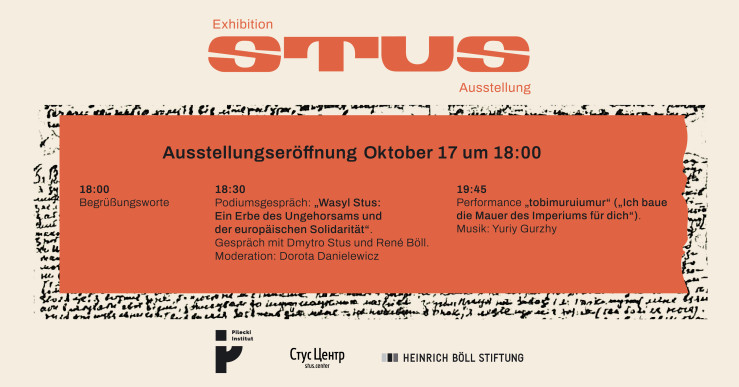
Panel discussion with Dmytro Stus and René Böll: ‘Wasyl Stus: Ein Erbe des Ungehorsams und der europäischen Solidarität mit Dmytro Stus und René Böll’. Moderator: Dorota Danielewicz
This panel discussion marks the opening of an exhibition dedicated to the life and work of Vasyl Stus, a Ukrainian poet, dissident, and Nobel Prize nominee who paid the ultimate price for defending his nation's language and identity. Featuring his son Dmytro Stus and René Böll, son of German Nobel laureate Heinrich Böll, who campaigned for Stus's release, the conversation will explore Stus's impact on Ukrainian resistance, his connection to European intellectuals, and the ongoing relevance of his struggle for freedom. The discussion will be moderated by Dorota Danielewicz, a writer, journalist and cultural manager, with deep expertise in Ukrainian, Polish, and German cultural contexts.
The Performance"tobimuruiumur" („тобі мурую мур Імперії“ / „Ich baue die Mauer des Imperiums für dich“) with music by Yuriy Gurzhy and Viktor Portwineov.
"Building the wall of the Empire for you" is a quote from a poem by Vasyl Stus, written after a dispute over language. Soviet policy gradually made the existence of the Ukrainian language impossible, pushing it out of the public sphere. This policy of Russification was thoroughly analyzed by the Ukrainian dissident Ivan Dziuba in his work "Internationalism or Russification?" (1965), which critically questioned the Soviet practices toward other then russian nationalities. After its publication, the book was banned, and even possessing it could lead to prosecution.
In our performance, we reflect on this text through the perspectives of historian James Mace, lawyer Rafal Lemkin, and, of course, Vasyl Stus. The music for this performance was composed specifically by Yuriy Gurzhy and Viktor Portwineov. The roles in the performance will be performed by Ukrainian actors alongside a Ukrainian soldier.
